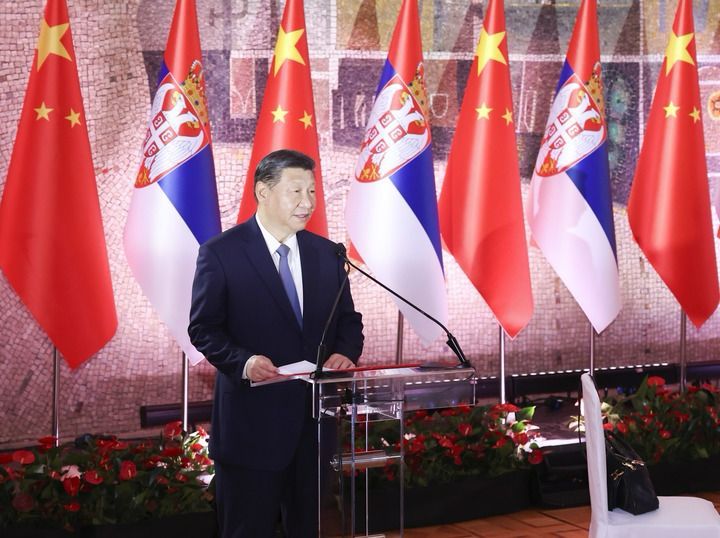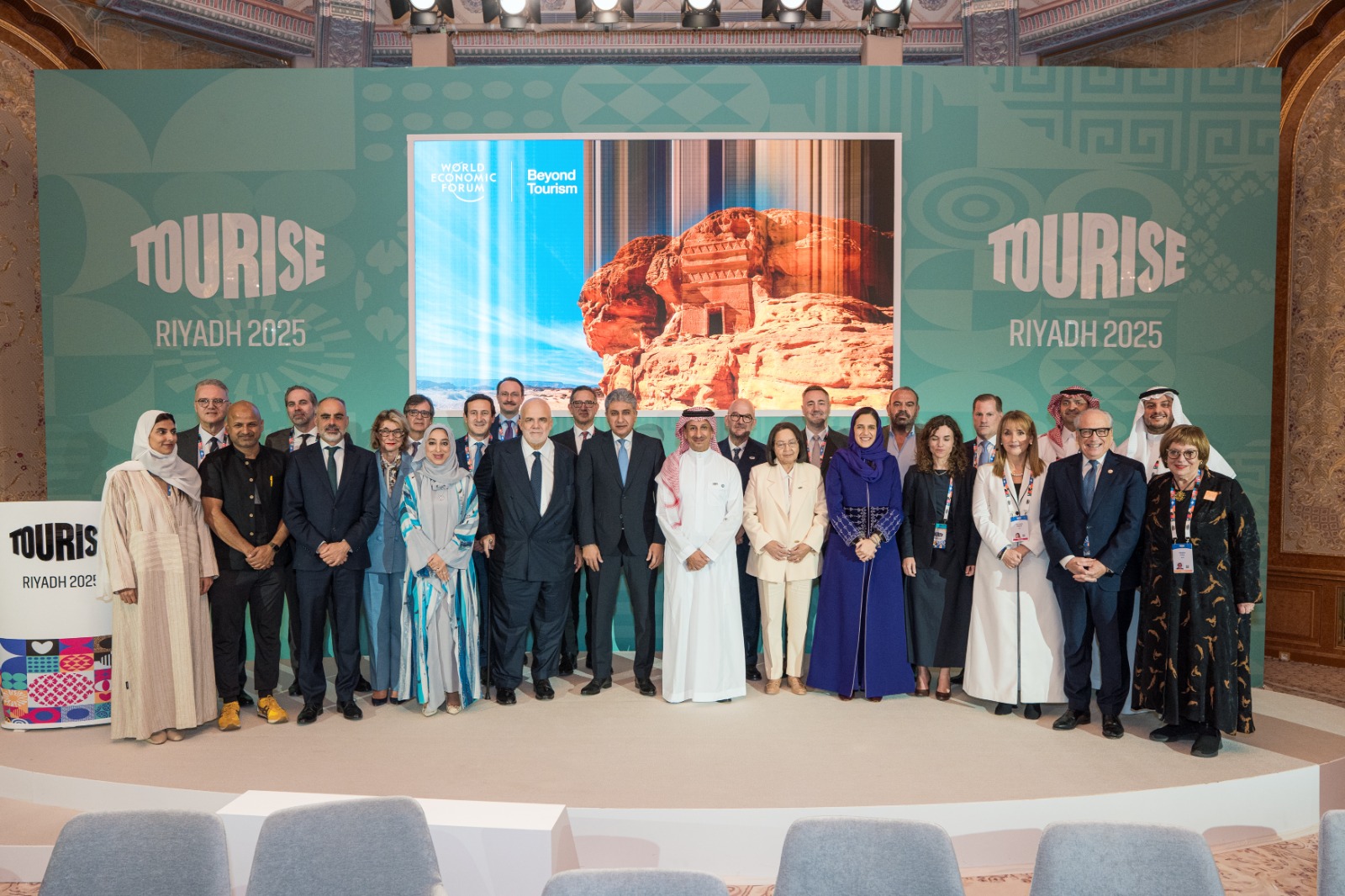
Xinhua
BELGRADE/BEIJING : Situated by the scenic Danube River, the Smederevo Steelworks had long been hailed as the pride of Serbia before it slid to bankruptcy more than two decades ago.
Thanks to the deepening of the high-quality Belt and Road cooperation between China and Serbia, the century-old factory made a remarkable comeback in 2016 when its Chinese partner arrived.
In just a couple of months, the steel mill started turning a profit. It has now become one of the world’s largest iron and steel makers and integrated service providers measured by production capacity.
The rebirth of the steel mill stands as a key epitome of the broader practical cooperation between the two countries.
As Chinese President Xi Jinping pays his second state visit to the European country in the coming days, expectations are running high that the ironclad friendship between the two nations will be further enriched and strengthened.
Many big Chinese investment projects here were brought about by President Xi, former Serbian President Tomislav Nikolic said. “He is a sincere friend of Serbia.”
AN ICON REBORN
During his first state visit to Serbia in 2016, Xi offered a strong helping hand to the Smederevo Steelworks, ushering in a wave of Chinese support.
Serbian President Aleksandar Vucic clearly remembers how he, then as prime minister, approached Xi during the latter’s visit with the idea of saving the struggling company. Xi assured him with a famous Chinese saying that “promises must be kept, and actions must be resultful.”
“What we pledge to do, such as introducing cutting-edge technology, ensuring local employment, and benefiting the wider community, must be achieved without fail,” Xi told the workers when visiting the factory.
Vladan Mihailovic, executive director for production at the steelworks, described Xi’s visit as a turning point. With Xi’s support, China offered sustained assistance to Serbia to revive the factory.
“The president’s commitments, especially regarding the modernization of production facilities, have become a reality,” said Mihailovic.
About 60 km away to the northwest of the steelworks nestles the Belgrade Centre railway station, the starting point of another Belt and Road Initiative (BRI) cooperation project Xi cares about — the Belgrade-Novi Sad high-speed railway.
As a segment of the Serbia-Hungary railway, it began operations in March 2022 and has since been shuttling passengers between Serbia’s two largest cities at speeds of up to 200 km per hour. Vucic dubbed it “a gift for future generations.”
The flourishing cooperation between Beijing and Belgrade within the framework of the BRI epitomizes the growing synergy between development strategies of the two countries, which has significantly bolstered bilateral economic and trade relations.
According to Chinese customs statistics, the total trade volume between China and Serbia in 2023 reached 4.35 billion U.S. dollars, an increase of 23.7 percent compared to the previous year.
In October last year, witnessed by Xi and Vucic, China and Serbia signed a free trade agreement in Beijing, the first one inked between China and a Central and Eastern European country. After the deal takes effect, more than 60 percent of taxable items will become tariff-free immediately, and the final import volume proportion of both sides with zero-tariff items will reach about 95 percent.
“China is one of the most important partners for Serbia’s economic development,” said Nenad Stekic, a research fellow with the Institute of International Politics and Economics, a Serbian think tank.
“Since we elevated our relationship to a comprehensive strategic partnership in 2016, the relationship has been really going on an upward trajectory across the board,” he added.
A FRIEND IN NEED
Both the steel mill and the iron rail bear witness to the special rapport between the two nations, which has been forged with blood and lives. In the face of difficulties and challenges, the Chinese and Serbian people have always supported each other through thick and thin.
When the COVID-19 pandemic wreaked havoc across the world, China extended timely help to Serbia. Providing Serbia with protective equipments, medical instruments and vaccines, China also dispatched a team of medical professionals to help it better contain the pandemic.
It was already late night hours when Chinese medical team landed at Belgrade’s Nikola Tesla Airport. Vucic headed a group of senior officials to greet the experts. While handshaking was not advisable during the outbreak, the Serbian leader chose to elbow-bump with every member of the Chinese team. He also kissed a Chinese national flag in a show of gratitude for China’s timely support.
The Chinese people “have proven as friends in the most difficult times when we fight for lives of Serbian people,” Vucic said.
In the following month, Serbia awarded its most prestigious military awards to the Chinese medical team members, recognizing their invaluable contribution to the country’s battle against the pandemic.
When China was facing difficulties, Serbia also rushed to help. After a massive earthquake flattened China’s Wenchuan county in 2008, Serbia offered speedy assistance to China and provided a large amount of relief supplies to the people in the affected areas.
“A friend in need is a friend indeed. That’s a great sentence,” Vucic told Xinhua.
A BOND IRONCLAD
“An ironclad friend” is how Xi describes Serbia in China’s foreign relations. In Chinese diplomatic discourse, the term conveys a special meaning.
Serbia is proud of its ironclad friendship with China, and China has always treated Serbia as equal, Vucic told Xi during his visit to China to attend the third Belt and Road Forum for International Cooperation in October last year.
An ironclad friendship, commented Wang Yiwei, director of the Institute of International Affairs at Renmin University of China, implies close relations, close communication and close cooperation on the basis of true respect for each other’s core interests. All these features apply to the China-Serbia relationship.
Taking a stroll through Belgrade’s Kalemegdan Park, a symbol of Serbia’s resilience, heritage and natural beauty, during his 2016 visit, Xi expressed his profound respect for the country and its people.
“The Serbian people, with an indomitable spirit, have revived time and again in history like the phoenix nirvana, which the Chinese people admire very much,” said the Chinese president, who maintains that all countries, regardless of size, are equal members of the international community and should coexist peacefully and learn from each other.
Guided by Xi’s philosophy, China firmly supports Serbia on issues concerning its core interests and major concerns, making their ironclad friendship a good example of equal treatment and mutual benefit between countries of different sizes.
The bond between the two countries is reinforced not only through diplomacy but also through mutual respect and understanding, emphasized Aleksandar Vulin, a former Serbian minister of defense and internal affairs.
“Serbia holds profound respect for the People’s Republic of China, not merely due to its size, but owing to the exemplary leadership it embodies,” he added. “China knows how to talk and listen. China is a partner, not a commander. China does not dictate, China advises.”






